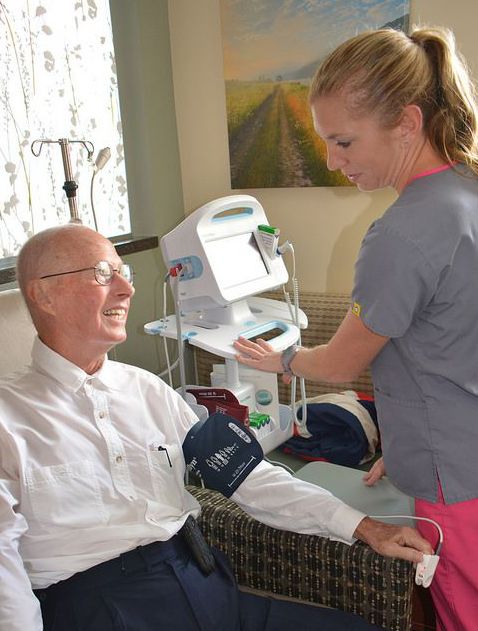Hefner VA strives to give cancer patients comprehensive care
Published 12:00 am Monday, July 21, 2014
SALISBURY — Battling a serious illness like cancer could seem overwhelming, but the oncology staff at the Salisbury VA Medical Center is doing everything possible to be a partner to veterans during treatment.
That partnership shows through in the attention to detail and caring spirit of the staff in the oncology department, said Norde Wilson, who receives care in the clinic. He and his wife appreciate the treatment Wilson receives, and the way staff treats patients.
“The people who work over here are just as upright and pleasant at the end of the day as they are when they start. They’re always ready to accommodate us in any way they can — they take good care of me — and we’ll miss it when we don’t come,” said Wilson.
Jimmy Ruiz, MD, chief of oncology, said great customer service and compassion are a must for providing care to patients who are dealing with cancer diagnoses and treatment.
“The staff here is very different from other types of clinics and I think a lot of it has to do with the specialty care aspect of cancer care,” he said. “Those who work in hospice and palliative care are often a different breed of providers, and you also see that in cancer care. People who gravitate to this field have specific characteristics. Everyone on our nursing staff is very conscientious, caring, always willing to go out of their way to make the experience the best that the veteran can have.”
“Everyone here has this same sense of trying to make this experience the best that it can be for the veteran, especially during troubling and difficult times that come with cancer diagnoses. It breeds an environment where patients feel at home,” he added.
Something else that makes the department unique is that they try to provide as many services in one spot as possible.
“Infusion, oral chemo, dedicated pharmacists; everything is handled here at this facility,” said Ruiz.
The oncology clinic treats patients who have both blood cancers and benign hematological problems, as well as standard oncology treatment for cancer patients with solid tumors.
Maeghan Iddings, a clinical program specialist in oncology, said one of the services the clinic provides is thoroughly explaining the treatment to veterans.
“We have a nursing education clinic, where after a diagnosis they are taught about what kinds of medications they’re going to receive, and the plan of treatment — the nurses go over it with every new veteran. It’s a huge component that makes the veteran feel a little more at ease,” she said.
Ruiz added that his department strives to provide the most up-to-date treatments.
“One aspect that is very interesting and specific to our program is that we have specialization within the specialty, driven in large part by our academic affiliations with Wake Forest,” he explained. “Everyone here has an academic appointment at Wake Forest, and the majority of us have spent time at Wake Forest in an academic environment — which gives us access to cutting edge technologies, and we are generally there to see when the field moves forward and implement those changes here.”
“We have a professor of medicine here who has more than 30 years of experience in lung cancer, which is probably uncommon for a lot of clinics — he sees all of our lung cancer patients,” added Ruiz. “We also have people who specialize in benign and malignant hematology. In the community, we usually see general hematologists and oncologists, so they pretty much treat everything.”
“We also have a thoracic oncology program, which is a special clinic that is truly multidisciplinary. When the patient comes in, usually with a diagnosis of lung cancer, the person gets to see a set of doctors — the medical oncologist, the surgical oncologist, and at times the pulmonary medicine physicians — all in one sitting,” said Ruiz. “This not only allows us to expedite their care, but to apply effective care. This type of clinic is very specific to large centers, so we are unique to be able to offer it here.”
Ruiz said as there are advancements in treating cancers and new cancers continue to emerge, it gets harder and harder to stay on the cutting edge of personalizing cancer care.
“Because of this, it’s very important for us to mimic a large cancer center in that we provide specialty care within the specialization, which leads to more personalized care for the veteran,” he said.
For more information about the Salisbury VA Medical Center, visit http://www.salisbury.va.gov/.






